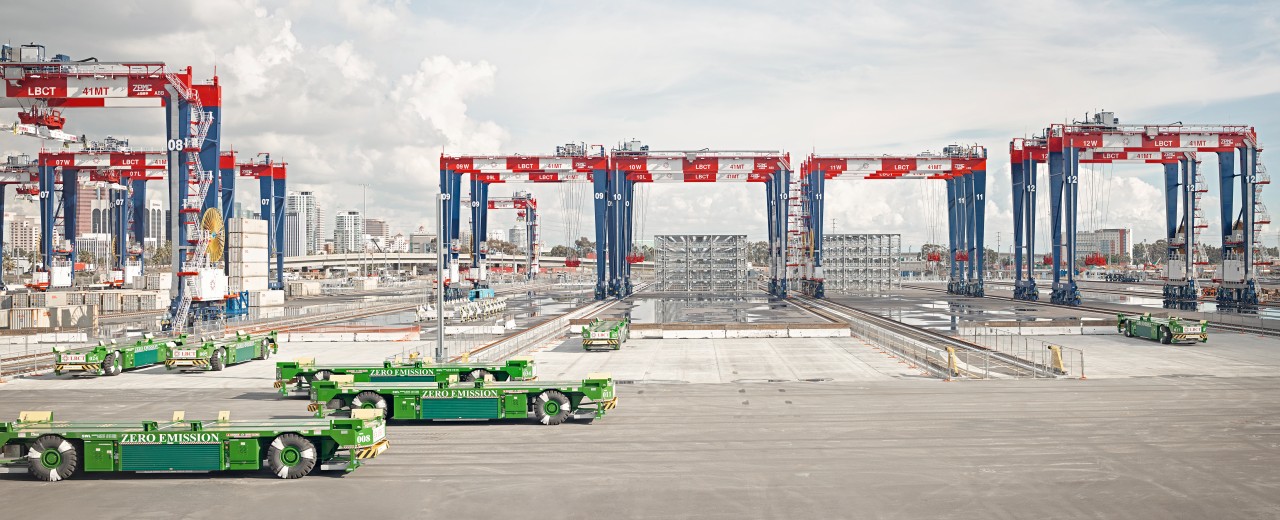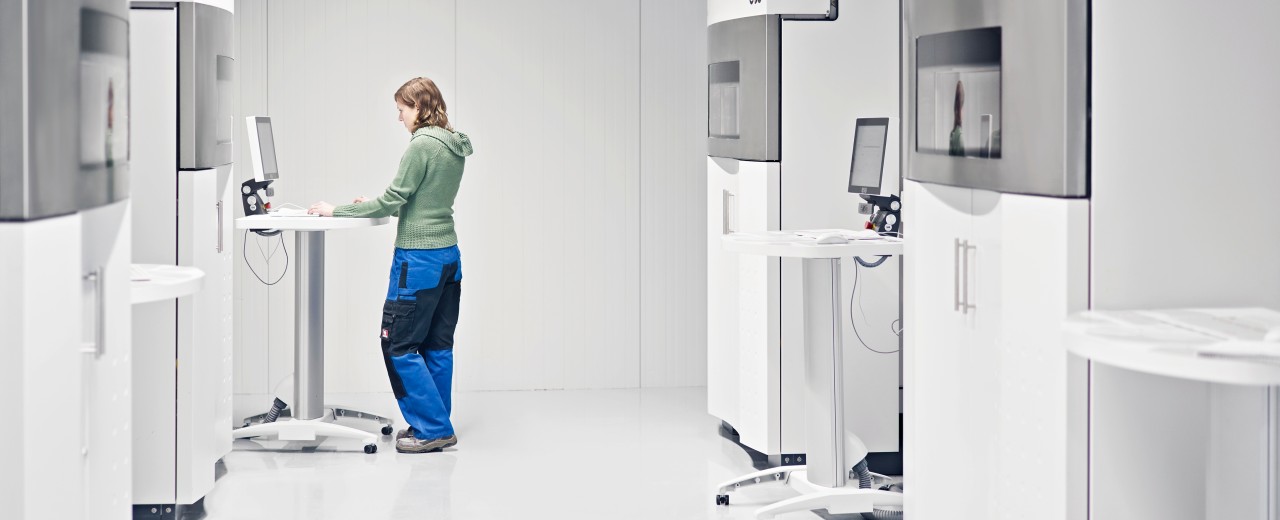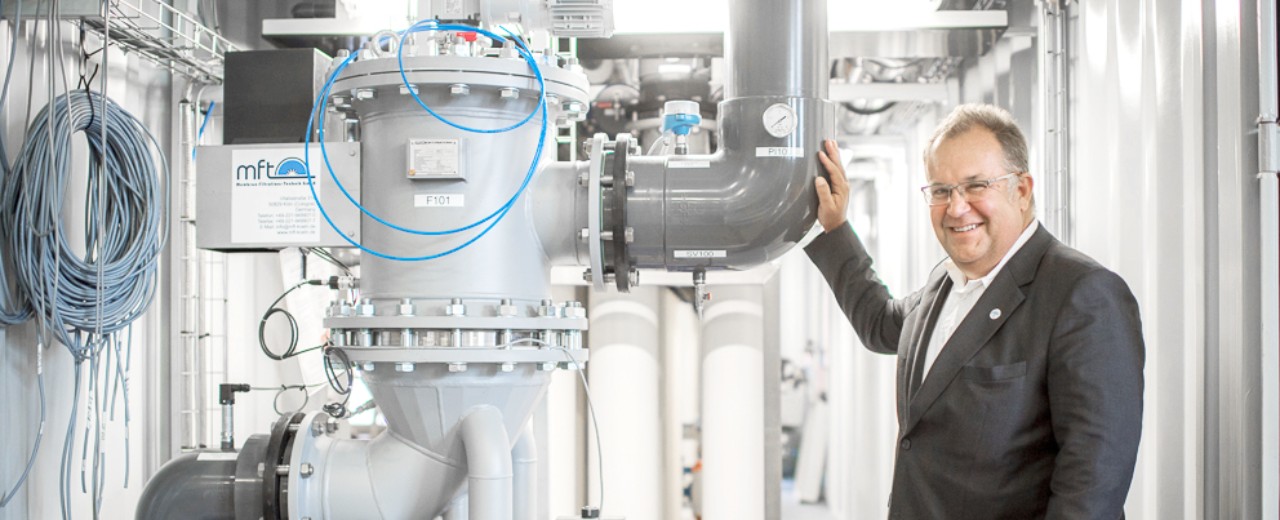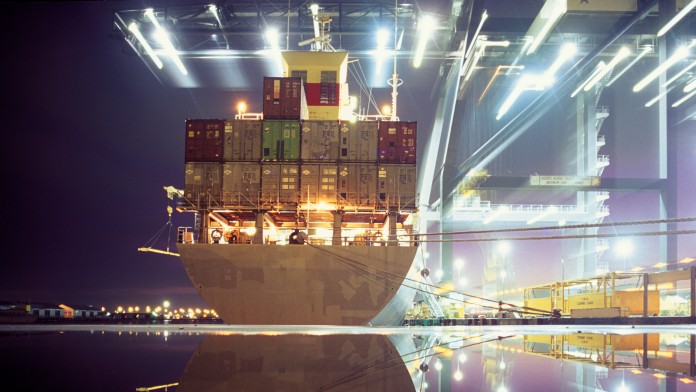Taking responsibility – digitalisation
“KfW is undergoing a digital transformation process, and sees these new technologies as an opportunity. In doing so, we are meeting our customers’ growing demand for the streamlined and digital processing of their promotional loans. We also want to do our bit to promote Germany’s digital transformation.”
Dr Ulrich Schröder (Chief Executive Officer)
We promote digitalisation – in Germany and abroad
KfW sees technological trends and the applications driving digitalisation as a chance to improve its promotional offering. We are therefore promoting digitalisation in Germany and abroad, but are also pushing KfW’s own digital transformation.
Digitalisation for Germany
The German economy is only in midfield in international digitalisation rankings. A lot of work needs to be done in order to move closer to the top. But the efforts will be worth it. Hopes for growth, increased productivity and competitiveness are pinned on digitalisation, and it is also increasingly a source for innovation in businesses, innovative start-ups and new business models.
The same applies to German SMEs. Although small and medium-sized enterprises are increasingly addressing digitalisation, they are only implementing specific measures very gradually. KfW is currently refining its activities to promote innovation in partnership with the German Federal Ministry for Economic Affairs and Energy (“BMWi”) in order to create targeted incentives for digitalisation projects.
The digital on-lending platform “BDO 2.0” developed by KfW to facilitate access to promotional funding exploits the opportunities offered by digitalisation. All housing sector promotional products are now processed digitally between KfW and its financing partners via this platform. The first commercial promotional loan was also granted via BDO in the summer of 2016. Since December 2016, private clients have been able to apply for the investment grants offered by KfW via the KfW grant portal, and receive their funding commitment immediately.
Digitalisation abroad
Digitalisation enables development barriers to be overcome
Digital technologies basically provide an opportunity to improve the efficiency, speed and environmental sustainability of social and economic development processes. There is great potential here, particularly for developing countries, to overcome barriers to development, including:
1. Improved basic services particularly for people living in remote regions (e-health, e-learning, mobile banking, etc.)
2. Business potential: new local employment and production opportunities thanks to the elimination of spatial marginalisation through improved communication (Internet) and decentralised and needs-oriented local production (mass customisation through 3D printing reduces importance of economies of scale)
3. Elimination of governance deficits through improved transparency (provision of information), public involvement (online portals) and control of corruption (verification through database comparison, etc.)
Many experts see digitalisation as an opportunity to quickly make up lost development ground through technology. Some even see developing countries in the fast lane because they are not really affected by “lock-in” due to outdated forms of technology, but can develop contemporary technological infrastructure right away.
Project and export financing with fast-growing digital content
German and European manufacturers are in demand around the world, particularly in the field of mechanical engineering. There’s a wealth of digital expertise involved in the export of state-of-the-art system technology and equipment, from robot paint sprayers for fully-automated car factories, to a computerised energy feed from an offshore wind turbine into a smart power grid, to RFID (radio-frequency identification) chips in shipping containers. Facilities communicate with one another via Internet (machine-to-machine communication), processes are monitored by the mainframe computer and plants that are actually incompatible are connected via robotics. Digitalisation is a permeatingall industries.
Although German engineering was purportedly late to the global digitalisation party, businesses are working hard to catch up. KfW IPEX-Bank's international business includes supporting German and European companies in weathering international competition. And every successful export helps digitalisation to progress.
Digitalisation at KfW
KfW took the decision last year to establish a digital office and an innovation lab, with the aim of developing KfW’s digital strategy both internally and externally. The company plans to make better and systematic use in all business areas of the opportunities presented by digitalisation and new forms of technology. The digital office is currently being set up, and the innovation lab was opened in Frankfurt in September 2016. It serves as a creative, attractive and flexible working environment, where innovation and agile cooperation are encouraged. It also involves intensive use of methodologies such as “design thinking”.
The cultural change associated with digitalisation is receiving support from Human Resources by way of a digital academy. The focus is on the changes in working relationships, management and communication caused by digitalisation in the long term. There is also a desire to increase KfW’s innovative strength in both digital and non-digital areas.










Data protection principles
Privacy information
Alternatively, you can also copy the short link: kfw.de/s/enkBbwFb
Copy link Link copied